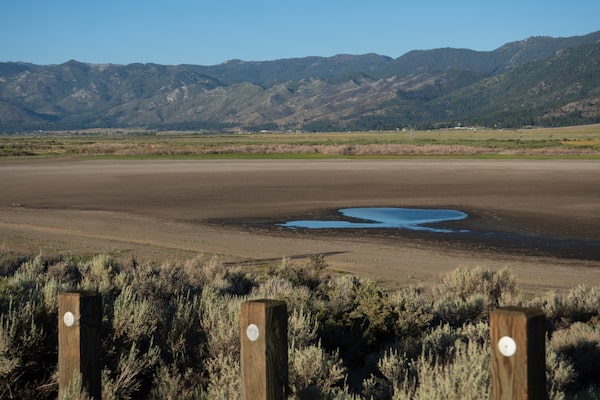If you’re reading this on the web or someone forwarded this e-mail newsletter to you, you can sign up for Globe Climate and all Globe newsletters here.
Good afternoon, and welcome to Globe Climate, a newsletter about climate change, environment and resources in Canada.
Before jumping into our usual content, have you noticed that alcohol levels in wine have increased in recent years?
Red wines produced in Bordeaux, Tuscany and Piedmont have experienced similar increases, according to a new report that surveyed alcohol levels in so-called fine wines over the past 30 years, and climate change is the biggest culprit, wine writer Christopher Waters reports.
Now, let’s catch you up on other news.
Noteworthy reporting this week:
- Policy: Ottawa has a self-made mess to clean up before resentment toward carbon pricing festers, writes Adam Radwanski. In fact, if Ottawa were looking for a way to reignite Western opposition to its climate strategy, it couldn’t do much better.
- Energy: Shell Canada plans to capture more pollution at its Scotford refinery complex near Edmonton, the company’s latest move to convince the public and shareholders it is serious about reducing its greenhouse gas emissions.
- Waste: One Alberta company could make a serious dent in the growing mountains of waste headed to landfills if its technology for turning refuse into fuel for trucks and planes goes according to plan.
- Politics, From The Narwhal: Catherine McKenna on her legacy, her future and what it was like battling conservative premiers.
- Weather: ‘The plants looked as if someone took a blowtorch to them’: Relentless heat is scorching crops across Western Canada as farmers brace for the potential of more unfavourable weather and try to minimize their losses.
Gobind Farms owner Satnam Deenshaw looks over his blackberry crops that were recently damaged by the heat wave that Vancouver Island and other parts of British Columbia experienced. He's photographed on one of his berry plots in Saanichton, B.C., on Thursday, July 15, 2021. Chad HipolitoCHAD HIPOLITO/The Globe and Mail
A deeper dive
Canada wants nuclear to power the future. But how?
Matthew McClearn is an investigative reporter and data journalist with The Globe. For this week’s deeper dive, he talks about Canada’s nuclear ambitions.
Senior government officials, notably federal Natural Resources Minister Seamus O’Regan, say small modular reactors (SMRs) will help Canada achieve net-zero carbon emissions by mid-century. There’s just one problem: it’s not clear yet whether any will be built.
To be sure, many promises made by SMR vendors seem compelling. By taking advantage of factory-style mass production, they’re supposed to be far cheaper than previous generations of reactors, which tended to be massive and prone to cost overruns. They’d also be easier to deploy. Yet they’d retain the best feature of traditional reactors: negligible greenhouse gas emissions.
A mad scramble to deliver on these promises is now underway. Ontario Power Generation—by far Canada’s most experienced nuclear station operator—plans to select a vendor to build a SMR at its Darlington Station by 2028. Further out, Saskatchewan is considering whether to order its own SMRs to replace coal-fired plants.
Accomplishing all that would silence numerous critics and naysayers. But as I explain in my most recent story, history is littered with reactors that failed to live up to their promises. Many SMR vendors are very early-stage companies which face years of grueling, expensive R&D work to advance their designs to the point they could actually be built. And they’re competing against renewable technologies including wind and solar, which utilities can purchase and deploy today. It may be premature to count on SMRs to help meet Canada’s emissions targets.
- Matt
What else you missed
- A New Brunswick-based whale-rescue team says two North Atlantic right whales in the Gulf of St. Lawrence were entangled in fishing gear, a dangerous situation experts say risks killing the endangered animals.
- Portions of the Amazon rainforest are now emitting more carbon dioxide than they absorb.
- Tonnes of bulk fuel has been safely removed from a ship that sank off the west coast of Vancouver Island more than half a century ago.
- Fires threaten U.S. Indigenous lands in desiccated Pacific Northwest.
- China plans July launch of national carbon emissions trading scheme.
- Singapore unveils one of the world’s biggest floating solar panel farms.
Opinion and analysis
Jeffrey Jones: EU’s sweeping climate plan serves notice to the world
Eric Reguly: The government’s 2035 electric vehicle mandate is delusional
The Editorial board: How planting trees can cool Canada’s cities in an era of climate heating
Natan Obed: We need action on Inuit food insecurity
Tony Hiss: Life under the heat dome: You might no longer know where you are
Green Investing
Globe advisor: Why emerging markets are betting on green infrastructure
Green infrastructure is a great opportunity for an emerging market country to create jobs, growth, and lower the dependence on oil and gas. It’s a win-win on so many levels.
Investors need to look at the prospects for long-term growth and companies that have technologies with high barriers to entry, strong technology, and strong management. Those are the kinds of companies you should back.
Making waves
Each week The Globe will profile a Canadian making a difference. This week we’re highlighting the work of Dr. Sara Hastings-Simon doing research on macro energy systems.

Dr. Sara Hastings-SimonHandout
Hi, I’m Dr. Sara Hastings-Simon, 40, and I’m an assistant professor in the Department of Physics and Astronomy, and the School of Public Policy, at the University of Calgary.
My research on macro energy systems draws from my experience in physics, business, and policy to build an understanding of how low-carbon energy transitions happen within different sectors. I also look at how policy responses can improve outcomes to reduce emissions while creating economic opportunities.
I’m passionate about connecting research to practitioners and I’m a co-host of Energy vs Climate, a podcast that examines the energy transition and its impacts on Alberta and Canada. I previously founded Business Renewable Centre Canada, a not for profit that is accelerating large-scale renewable energy use across Canada by enabling corporations and institutions to buy renewable energy directly from developers.
I’m encouraged by the growing momentum for climate action and the expanding set of competitive low carbon technologies. Policies are key in shaping markets and enabling individual action to reduce emissions, so one of the most important things we can do is support strong climate policies.
- Sara
Do you know an engaged individual? Someone who represents the real engines pursuing change in the country? Email us at GlobeClimate@globeandmail.com to tell us about them.
Photo of the week

Little Washoe Lake on July 15, 2021 in Washoe City, Nevada. According to the Nevada Department of Wildlife, the lake dried up because of prolonged drought. Water levels were also adversely affected by a 2017 storm that washed out a diversion on Brown creek.David Calvert/Getty Images
Catch up on Globe Climate
- It’s not just Lytton. The future of wildfires in Canada
- First came the heat, then the fire
- It’s time for global standards in corporate reporting on ESG issues
- The future of coal mining under a microscope
We want to hear from you. Email us: GlobeClimate@globeandmail.com. Do you know someone who needs this newsletter? Send them to our Newsletters page.
 Sierra Bein
Sierra Bein